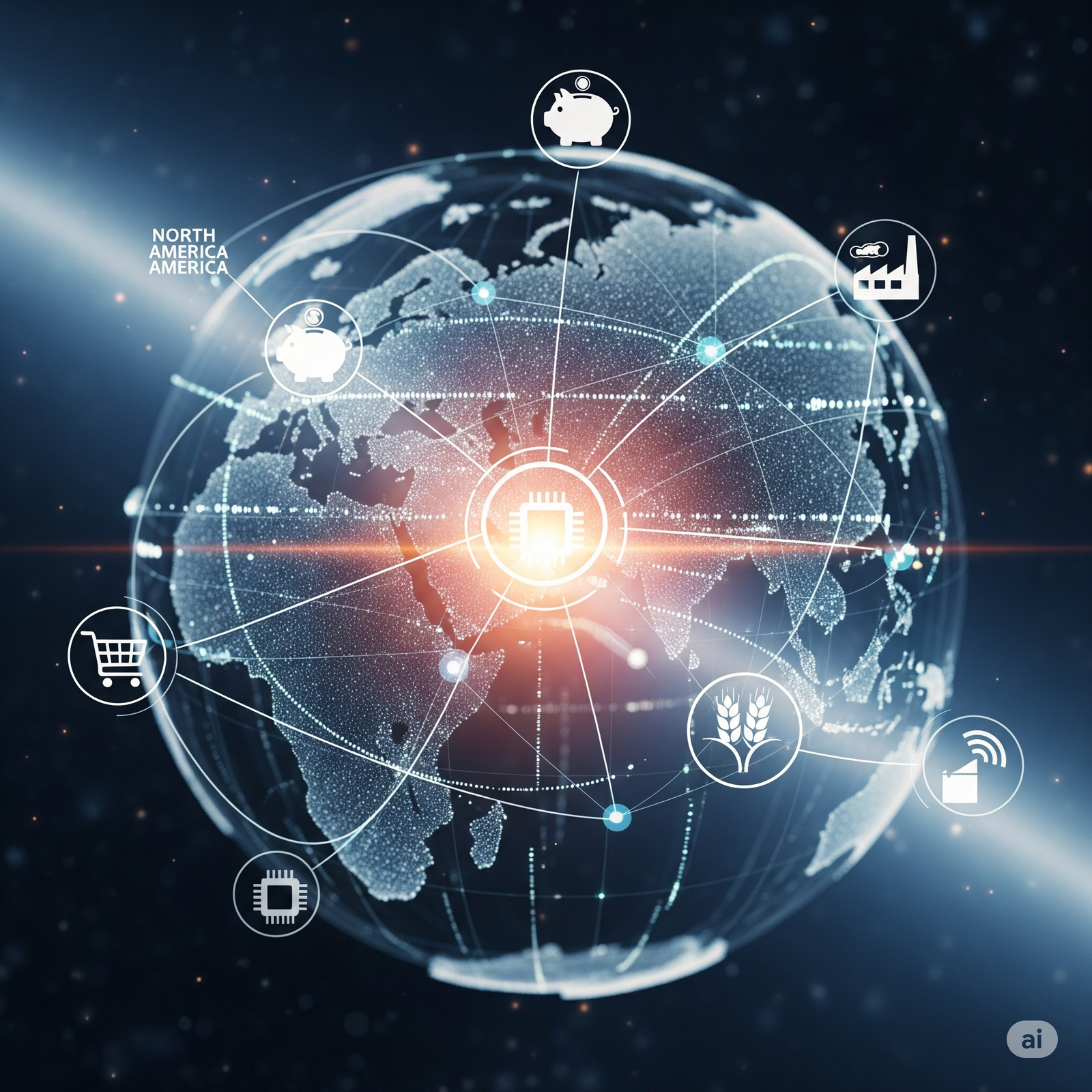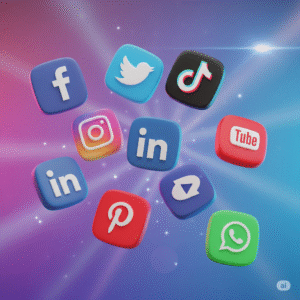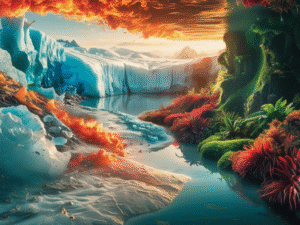Table of Contents
ToggleIntroduction
Business and economy are two inseparable aspects of human civilization. The economy provides the structure and environment in which businesses operate, while businesses contribute to the growth and development of the economy. Together, they create the foundation of modern societies, influencing employment, innovation, wealth distribution, and living standards. To understand the dynamics of business and economy, it is essential to explore their definitions, interrelationship, evolution, challenges, and future prospects.
This article delves deep into the interconnectedness of business and economy, examining how businesses act as drivers of economic progress, how economic policies shape business operations, and how both influence global prosperity.
Defining Business and Economy
What is Business?
Business refers to the organized effort of individuals or groups to produce and sell goods and services to satisfy human needs while earning profit. Businesses can range from small-scale local shops to multinational corporations with a presence across continents. The primary objectives of business include:
Generating profit and ensuring sustainability.
Providing goods and services to meet societal needs.
Creating job opportunities.
Encouraging innovation and competition.
What is Economy?
The economy is the system of production, distribution, and consumption of goods and services within a society or nation. It is often studied at two levels:
Microeconomics, which focuses on individual businesses, households, and markets.
Macroeconomics, which examines the economy as a whole, including national income, unemployment, inflation, trade, and government policies.
An economy can be capitalist, socialist, mixed, or command-based, depending on how resources are allocated and managed.
The Relationship Between Business and Economy
The connection between business and economy is circular and mutually reinforcing.
Businesses drive the economy
By producing goods and services.
By creating jobs and reducing unemployment.
By contributing to Gross Domestic Product (GDP).
By paying taxes that finance government programs.
The economy shapes businesses
Through interest rates, inflation, and currency fluctuations.
Via government policies such as taxation, trade regulations, and subsidies.
By consumer purchasing power, which depends on overall economic stability.
For example, during economic booms, businesses expand due to high consumer demand. Conversely, in recessions, businesses face challenges like reduced sales and layoffs.
Historical Evolution of Business and Economy
Ancient and Medieval Era
Business activities can be traced back to ancient barter systems where goods were exchanged directly. The invention of money transformed trade, enabling more complex economies. Medieval guilds and trade routes like the Silk Road promoted commerce and cultural exchange.
Industrial Revolution (18th–19th Century)
The Industrial Revolution marked a turning point where machines replaced manual labor. Mass production, urbanization, and the rise of factories transformed both business and economy. Capitalism flourished, and new financial institutions emerged to support industrial expansion.
20th Century
The 20th century saw globalization, the growth of multinational corporations, technological innovations, and financial markets expanding worldwide. Two world wars, the Great Depression, and the Cold War significantly shaped global economies and businesses.
21st Century
Today’s economy is defined by digitalization, artificial intelligence, e-commerce, sustainability concerns, and global interdependence. Businesses are not only profit-driven but are increasingly judged by their social responsibility and environmental impact.
The Role of Businesses in Economic Development
Job Creation
Businesses are the largest providers of employment in any economy. From small startups to large corporations, they employ millions, reducing poverty and raising living standards.
Innovation and Technology
Businesses drive innovation by investing in research and development (R&D). Technological advancements, such as smartphones, renewable energy, and artificial intelligence, originate in the private sector and transform entire economies.
Wealth Generation
Businesses generate profits for owners, shareholders, and stakeholders, creating wealth and distributing it through wages, dividends, and investments.
Infrastructure Development
Many businesses invest in infrastructure such as logistics, transportation, and digital networks, which benefit the overall economy.
Global Trade and Competitiveness
Through imports and exports, businesses link national economies with the global market, enhancing competitiveness and efficiency.
Economic Systems and Business Environments
Capitalist Economy
In a capitalist system, businesses operate in a free market with minimal government interference. Competition fosters efficiency, innovation, and consumer choice. However, inequality can be a major drawback.
Socialist Economy
In socialism, key industries are owned and managed by the state to ensure equality and equitable distribution of resources. Businesses operate under strong government regulation.
Mixed Economy
Most countries today follow a mixed economy model, blending free-market principles with government intervention. This ensures both efficiency and social welfare.
Emerging Economies
In developing nations like India, Brazil, and Indonesia, businesses are rapidly expanding, contributing to rising GDP and global influence. Such economies often face challenges like income inequality, unemployment, and inadequate infrastructure.
Key Factors Influencing Business and Economy
Government Policies
Taxation, subsidies, and regulations directly impact how businesses function. For example, favorable policies can encourage entrepreneurship, while excessive regulations may discourage innovation.
Globalization
Businesses now operate beyond borders. Outsourcing, foreign direct investment (FDI), and international trade shape modern economies. Globalization creates opportunities but also exposes economies to global risks.
Technology
The digital revolution has reshaped business models. E-commerce, fintech, blockchain, and artificial intelligence are redefining industries and productivity.
Consumer Behavior
Shifts in consumer preferences, such as demand for sustainable products, force businesses to adapt and innovate.
Natural Resources and Environment
Availability of raw materials and environmental regulations influence industries like energy, mining, and agriculture. Climate change has also become a critical factor shaping businesses.
Challenges Facing Business and Economy
Economic Inequality
While businesses create wealth, the gap between rich and poor continues to widen. This inequality leads to social unrest and limits sustainable growth.
Unemployment
Automation and artificial intelligence may replace millions of jobs, creating economic challenges for workers without adequate reskilling.
Global Economic Crises
Events like the 2008 financial crisis or the COVID-19 pandemic show how fragile the global economy can be. Businesses face massive disruptions during such times.
Environmental Concerns
Unsustainable business practices contribute to climate change, pollution, and resource depletion, forcing businesses and governments to focus on green solutions.
Geopolitical Conflicts
Trade wars, sanctions, and regional conflicts disrupt global supply chains, increasing costs and uncertainty for businesses.
The Future of Business and Economy
Digital Transformation
The digital economy will dominate the future, with businesses increasingly relying on artificial intelligence, machine learning, and data analytics. Cashless payments, online marketplaces, and virtual reality shopping are becoming mainstream.
Sustainable Business Practices
Green economy initiatives are gaining momentum. Businesses will have to adopt eco-friendly strategies, renewable energy, and circular economy models to remain competitive.
Global Collaboration and Competition
While globalization connects businesses, rising nationalism and protectionism may challenge international trade. Businesses will need to adapt by diversifying supply chains and exploring new markets.
Entrepreneurship and Startups
Startups will continue to drive innovation, particularly in technology, healthcare, and renewable energy. Governments worldwide are fostering entrepreneurship through policy support and funding.
Inclusive Growth
Future economic growth must be inclusive, addressing inequality, unemployment, and access to resources. Businesses will be expected to prioritize corporate social responsibility (CSR) and ethical practices.
Case Studies
The U.S. economy thrives on innovation and entrepreneurship. Companies like Apple, Amazon, and Tesla have revolutionized industries and contributed significantly to GDP growth.
China’s rapid transformation into a global economic powerhouse is fueled by manufacturing, exports, and technology-driven businesses. Its Belt and Road Initiative further strengthens global trade links.
India’s economy benefits from its growing IT sector, startups, and a large young workforce. The “Digital India” initiative has boosted e-commerce, fintech, and technological entrepreneurship.
Conclusion
Business and economy are not isolated concepts but deeply interconnected forces that shape human progress. Businesses act as the lifeblood of the economy by creating jobs, generating wealth, and driving innovation. In return, the economy provides the environment, infrastructure, and policies that allow businesses to thrive.
As we look toward the future, challenges such as inequality, environmental degradation, and technological disruption must be addressed with resilience and adaptability. The success of both business and economy depends on striking a balance between profit and sustainability, efficiency and inclusivity, local needs and global opportunities.
Ultimately, the growth of businesses and the strength of economies will continue to define the prosperity and well-being of societies worldwide.



